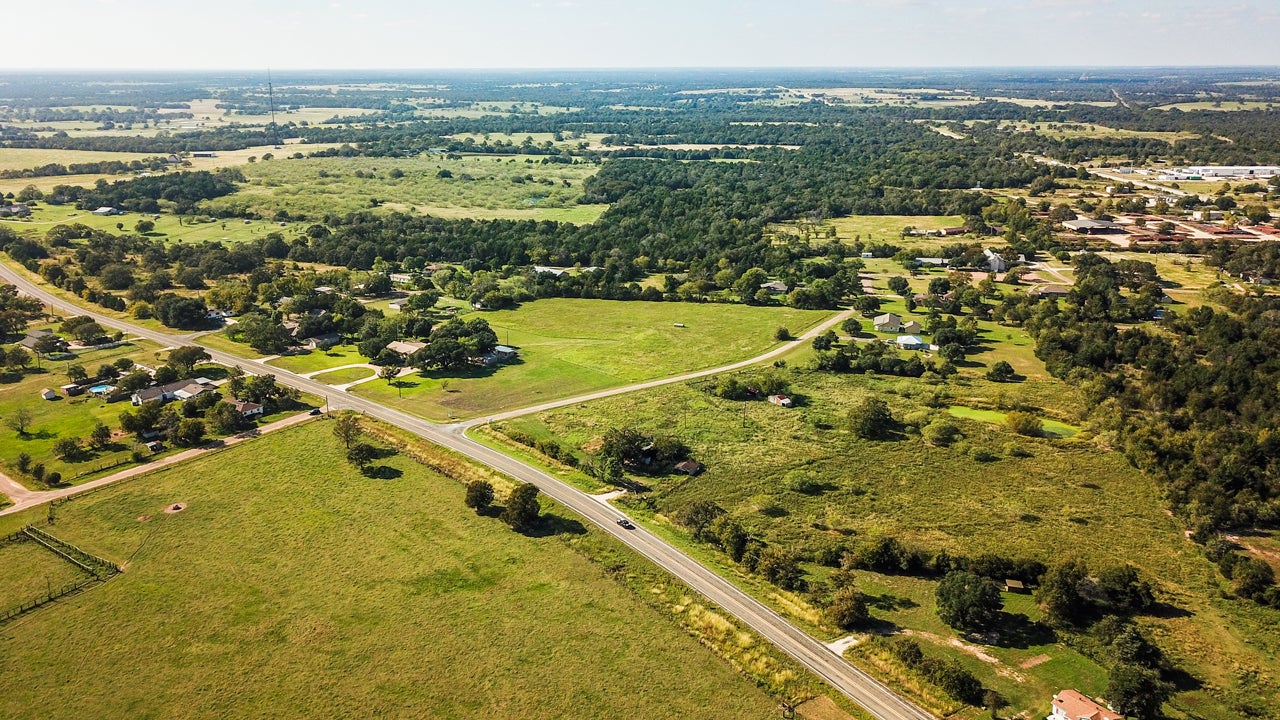Key takeaways
- You may be able to use a home equity loan to secure a loan to buy — and potentially improve — a plot of land.
- A home equity loan might offer better terms and interest rates than other financing options, such as construction, land or personal loans.
- However, you’d need substantial equity in your home to cover all the costs of the land purchase and construction of a home.
Given the current shortage of homes on the market, many would-be homeowners are contemplating new construction: buying land and building a house on it. However, purchasing a parcel or lot isn’t as straightforward as purchasing an existing home, especially when it comes to financing. While a regular mortgage is not an option, a home equity loan — its second-mortgage cousin — can be.
Let’s talk about how to buy land using home equity.
$1.48M
Number of building permits authorized for new-construction residences in December 2024
Source:
U.S. Census Bureau Economic Indicators Division
Using a home equity loan to buy land
When you take out a home equity loan, also known as a second mortgage, you’re borrowing money against the equity you’ve built up in your current home. That means that your home is collateral for the loan. If you don’t repay it, you could lose your home to foreclosure — a risk not to take lightly.
You can use the funds from a home equity loan to buy the land, hire an architect, or engage a general contractor — for just about any aspect of the construction process. Depending on the loan term, you might have as much as 30 years to repay the debt with interest, similar to a 30-year mortgage for a home purchase.
Another option is to use a home equity line of credit (HELOC), another type of second mortgage. Using a HELOC to buy land also means borrowing against the equity in your house, but instead of a lump sum, you get a revolving line of credit that refreshes as you pay back what you borrow. This could allow you to borrow to buy the land, repay that sum, and then borrow again to actually develop the property.
Pros and cons of using home equity to buy land
Pros
- A home equity loan has a fixed interest rate, so you can budget for predictable monthly payments.
- Qualifying for a home equity loan might be easier than other financing options.
- A home equity loan might offer better terms and interest rates than other loans and tax advantages (depending on exact use).
Cons
- You might not have enough home equity to cover the cost.
- If you can’t repay the home equity loan, you could lose your current home.
- Land doesn’t always increase in value, which presents more risk for you as the borrower and your lender.
What to consider before buying land with home equity
Before using home equity to buy land, consider what you’ll use the land for. Residential land sales represent about one-quarter (24 percent) of all U.S. land sales overall, but can approach close to half (42 percent) in some regions, like the southern East Coast, according to the latest “Land Market Survey” by the National Association of Realtors and Realtors Land Institute.
Then there’s the value of the land itself. As noted by the U.S. Bureau of Economic Analysis, land values vary drastically across the U.S. depending on location (for example, rural versus urban), proximity to public transportation and commerical hubs, and local market conditions. Those looking to build a home are likely looking for developed or improved land that’s already connected to main utilities and roads. Developed land is generally more costly than raw land.
Finally, there’s how much money you need. Many other expenses exist beyond the price tag of the land, including a land survey and title search. And of course, the costs to build a home once you’ve purchased the land it’ll sit on.
All of these can be paid for with a home equity loan, but you’d need a substantial ownership stake to cover everything involved in the land purchase and construction. And don’t forget the maximum you can borrow with a home equity loan is typically no more than 85 percent of your equity (sometimes just 80 percent). It might not be enough, in other words.
Is land a good investment?
Land can be a good investment. If you’re buying the parcel next to your current home, that added space can help you sell your property for more dollars down the line. You might also qualify for a tax deduction on the home equity loan interest, especially if you use the land to enlarge your home or add new structures or facilities — things that arguably improve the property value.
But if you buy a parcel way out in the middle of nowhere that isn’t hooked up to utilities, you’ll need to spend quite a bit of money before that land is usable. The more you have to spend, the more it eats into your return on investment.
Ultimately, this is a decision you should weigh carefully. Don’t act on it unless you have a clear use case for the land — especially if you’ll be using a home equity loan, which means putting your current residence on the line.
Can you purchase land using a conventional mortgage?
No: A mortgage has to be secured by an existing residential property. That’s why people have to explore other lending options when they want to buy land without a home on it.
Alternative land financing options
A home equity loan isn’t the only option for buying land. Consider these alternatives:
Construction loans
Construction loans are short-term loans meant for those building a new home. The loan can be used for various project-related expenses, including land, permits, materials and labor.
Typically, you draw down funds from the loan as needed as the project moves along and meets certain milestones, then convert it to a permanent loan and repay it similarly to a traditional mortgage. To qualify, you’ll need to provide the construction loan lender with a project plan that includes your budget and timeline, in addition to making a significant down payment or having other assets in the bank.
Some people buy land and wait to build equity in it. Once they have enough, they use the equity in land for construction loan collateral.
Land loans
As their name implies, land loans help borrowers buy raw or undeveloped lots or parcels. They aren’t as common as construction loans and, depending on how the loan is structured, may dictate a hefty down payment and a shorter repayment period.
Also, the Federal Deposit Insurance Corporation (FDIC) sets limits on how much financing a lender can extend on a lot or piece of land, ranging from 65 percent to 85 percent. Going by its guidelines, the minimum down payments on different types of land would be:
- Raw land loan: 35%
- Unimproved/undeveloped land loan: 25%
- Improved/fully developed land loan: 15%
Of course, individual lenders might demand even higher down payments. You also might need to put up your home as collateral or demonstrate that the property meets the appropriate zoning and land-use requirements.
Personal loans
Personal loans generally are for much smaller sums than home, construction and land loans, and tend to carry higher interest rates. However, they could be an option if you have your eye on a highly affordable parcel, or just need a few thousand dollars more to do the deal. The big advantages of personal loans: You can use the money however you want, with no restrictions or timelines to consider.
What is a land equity loan?
A land equity loan may be an option if you already own a piece of earth and want to buy more — or to improve property you have.
Where a home equity loan uses the home’s equity as collateral, a land equity loan uses the land’s equity as collateral. Using land to back the debt often affords you the option of lower interest rates and longer loan repayment terms than land loans do.
Another benefit of a land equity loan is that you don’t have to tie up other assets like your home. But of course, you’re in effect mortgaging the land. It’s the same principle, just on a different piece of collateral.
There are land equity lines of credit too, similar to HELOCs. With both, you can only borrow against the portion of land you own outright.
Bottom line on using home equity to buy land
Borrowing money to buy land comes with risks, especially if you’re putting your home on the line with a home equity loan. If that’s the case with you, consider whether a home equity loan is the best form of financing to make your land purchase happen.
Begin by comparing home equity loan rates and explore whether cash or a construction, land or personal loan might be a better fit.
Additional reporting by Meaghan Hunt
Read the full article here





